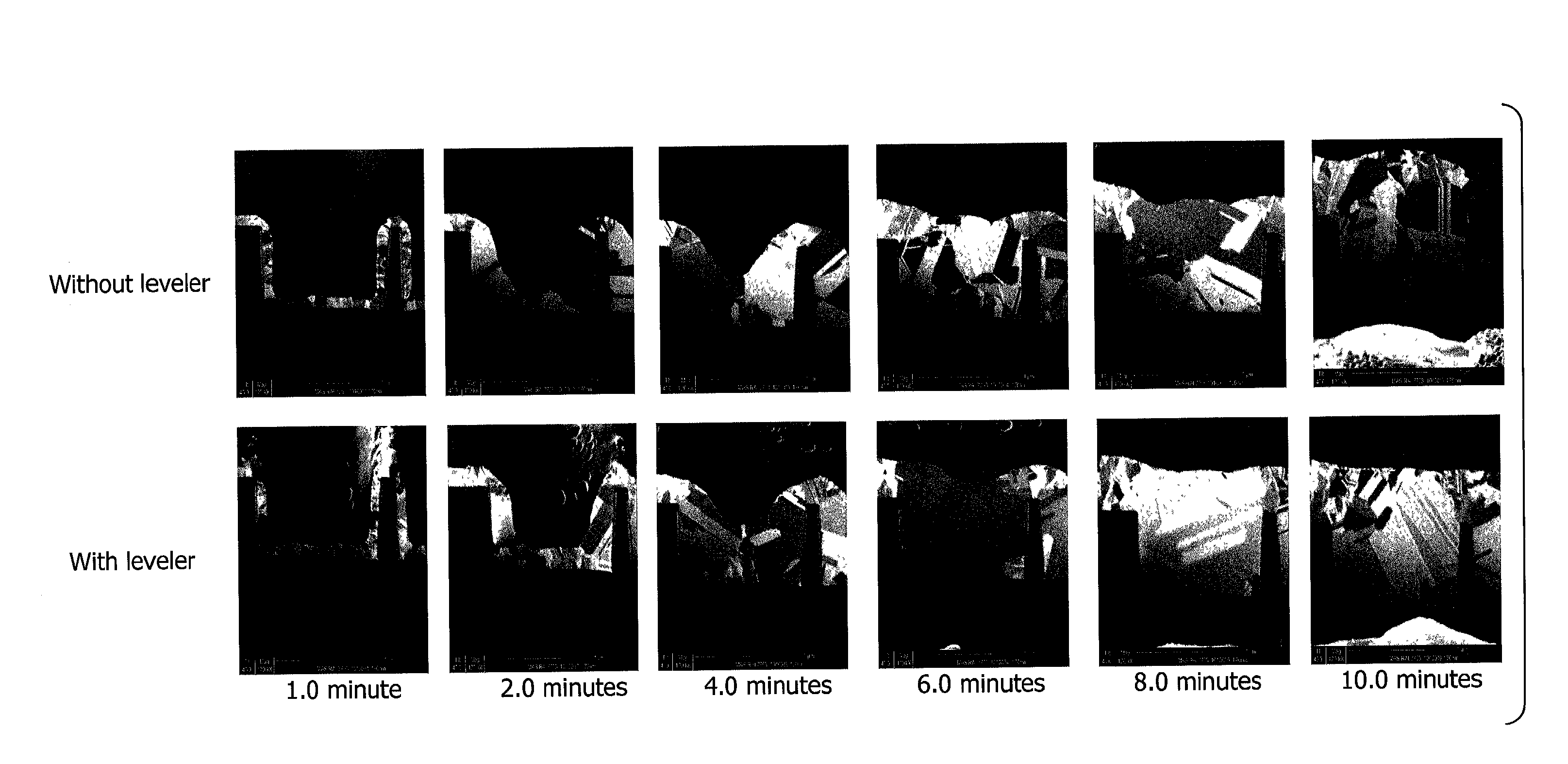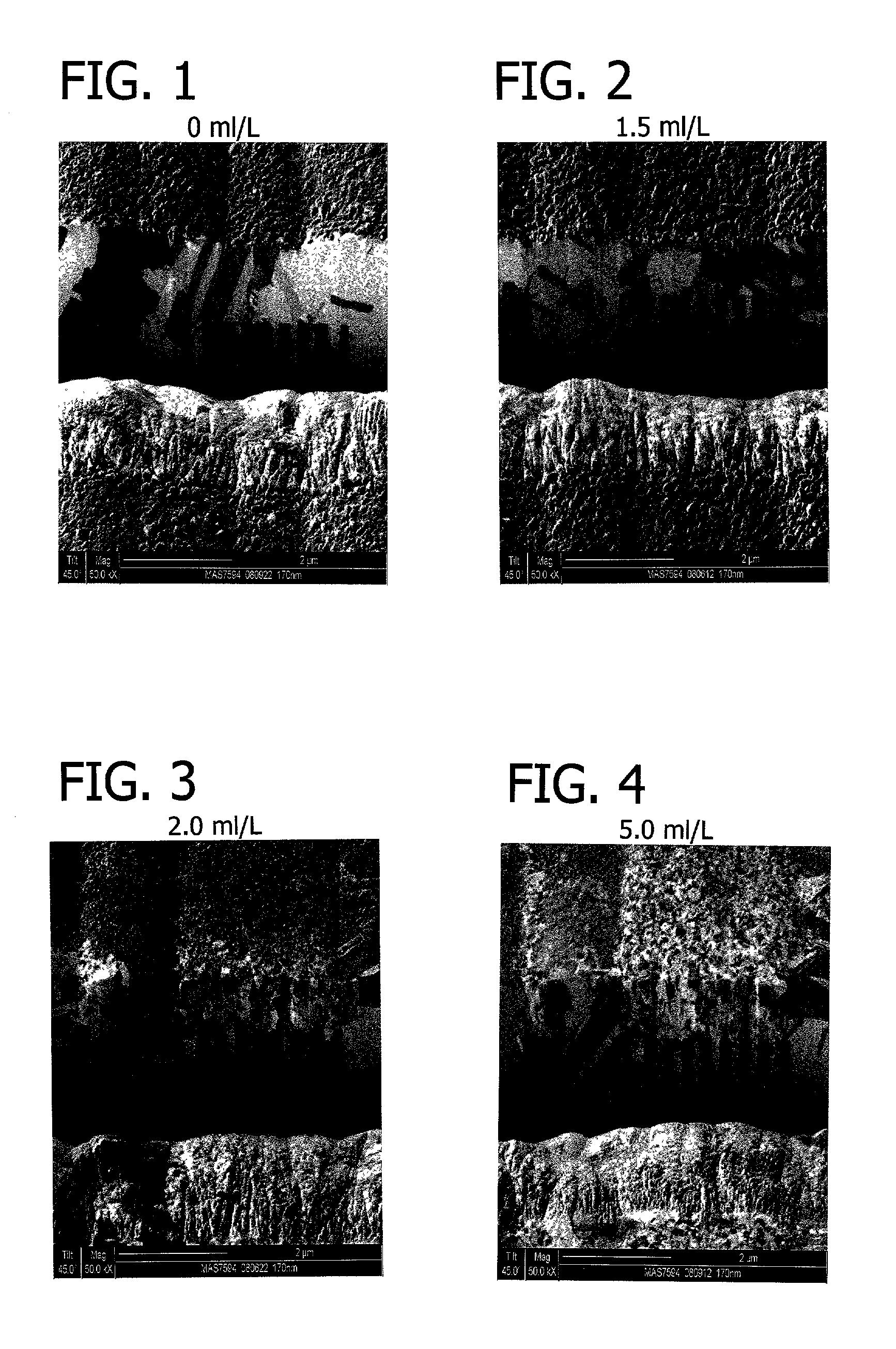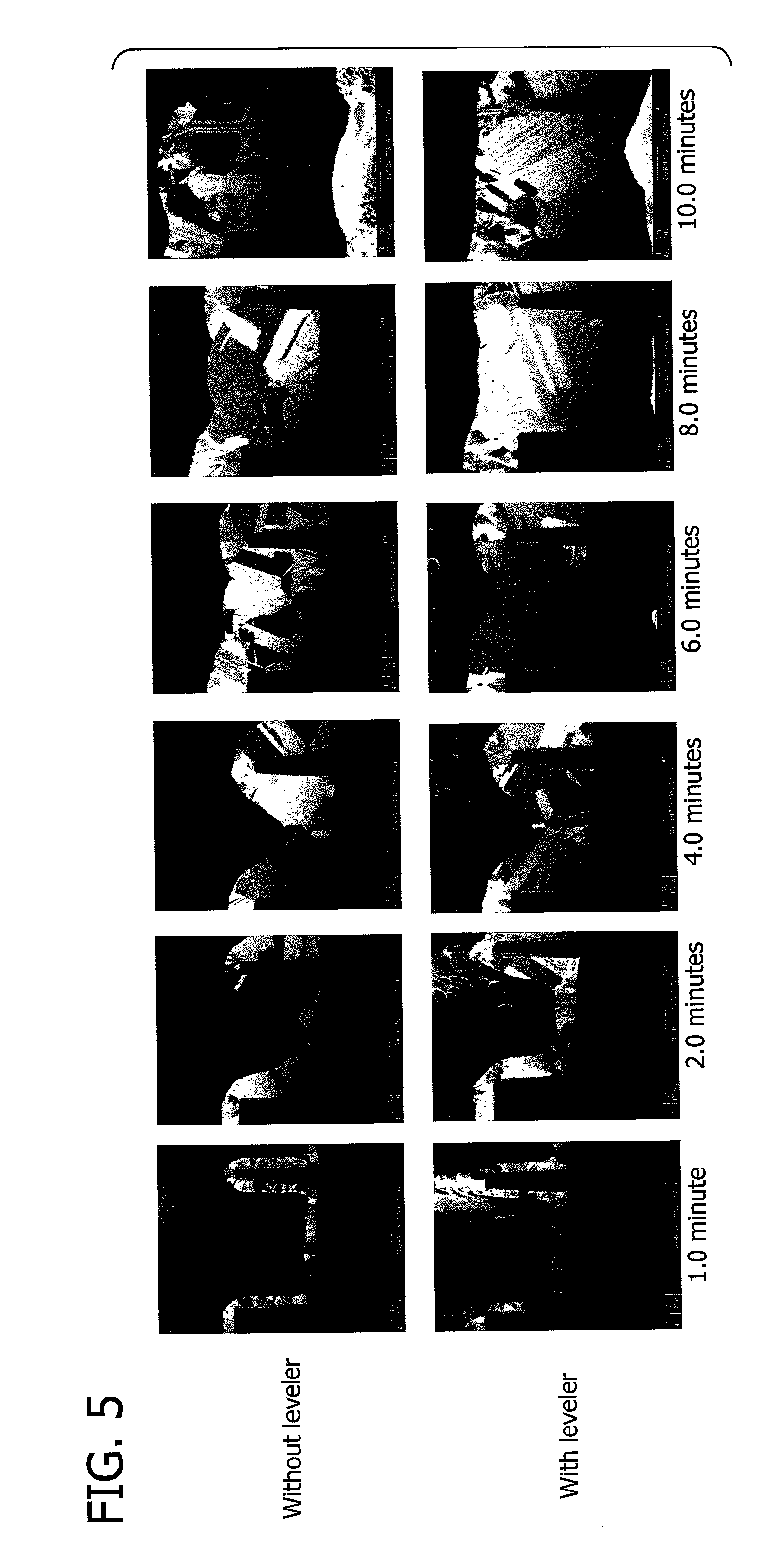Defect reduction in electrodeposited copper for semiconductor applications
a technology of electrodeposited copper and semiconductors, applied in semiconductor devices, printed circuits, printed circuit manufacturing, etc., can solve the problems of adversely affecting the conductivity of deposited copper, internal voiding and voiding, and severe penalization of the overall performance of the structure, so as to improve the macro-scale planarity of the wafer, improve the morphology of the surface, and reduce the roughness of the surface. , the effect of uneven growth
- Summary
- Abstract
- Description
- Claims
- Application Information
AI Technical Summary
Benefits of technology
Problems solved by technology
Method used
Image
Examples
Embodiment Construction
[0016]In accordance with this invention, a compound is incorporated into the plating bath which has the effect of reducing formation of micro-defects. Certain defects in deposited copper can occur due to locally uneven growth of copper crystals. Other defects formed after deposition, applicants believe, can be attributed to recrystallization and grain growth in the deposit. In particular, there are changes in volume resulting from grain growth, which changes in volume produce stress-induced defects. These volume changes also cause a degree of detachment of the deposit from the via and trench walls, which constitute defects. And recrystallization causes spontaneous internal voids as grain boundaries are eliminated.
[0017]Superfilling is rapid bottom up deposition within the features which is created by a two additive system consisting of a suppressor and accelerator. Generally the bottom-up filling created by a two-part system tends to form a bump or protruding surface defect over the...
PUM
| Property | Measurement | Unit |
|---|---|---|
| thickness | aaaaa | aaaaa |
| thickness | aaaaa | aaaaa |
| concentration | aaaaa | aaaaa |
Abstract
Description
Claims
Application Information
 Login to View More
Login to View More - R&D
- Intellectual Property
- Life Sciences
- Materials
- Tech Scout
- Unparalleled Data Quality
- Higher Quality Content
- 60% Fewer Hallucinations
Browse by: Latest US Patents, China's latest patents, Technical Efficacy Thesaurus, Application Domain, Technology Topic, Popular Technical Reports.
© 2025 PatSnap. All rights reserved.Legal|Privacy policy|Modern Slavery Act Transparency Statement|Sitemap|About US| Contact US: help@patsnap.com



